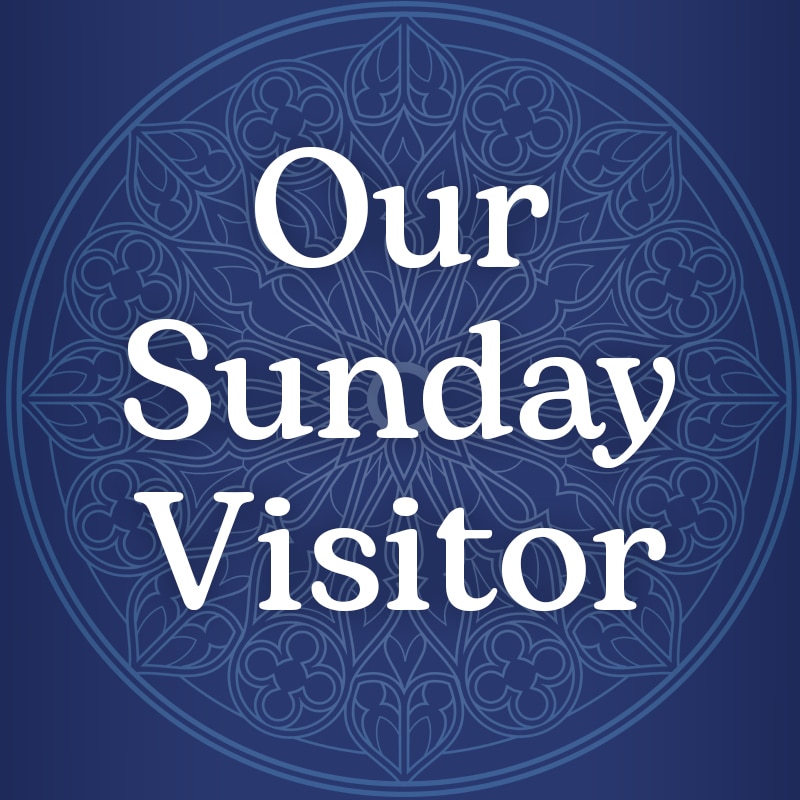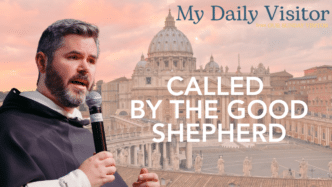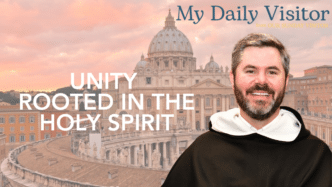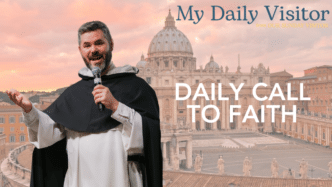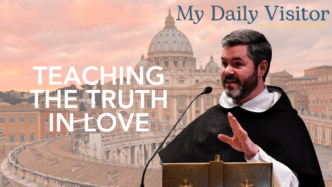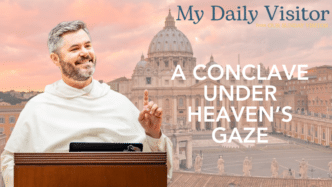Today is May 12, Monday of the Fourth Week of Easter.
We read at today’s Mass, “I was at prayer in the city of Joppa when in a trance I had a vision, something resembling a large sheet coming down, lowered from the sky by its four corners, and it came to me. Looking intently into it, I observed and saw the four-legged animals of the earth, the wild beasts, the reptiles, and the birds of the sky. I also heard a voice say to me, ‘Get up, Peter. Slaughter and eat.'”
In the Acts of the Apostles, Peter recounts this remarkable experience: “I also heard a voice say to me, ‘Get up, Peter. Slaughter and eat.'” The vision he receives — of a sheet descending from the sky filled with all kinds of animals, reptiles, and birds — addresses one of the most urgent and controversial questions in the early Church: Can Gentiles be welcomed into the Christian community? And if so, must they first observe the Jewish customs, including the dietary laws?
Peter’s vision directly answers that question. It’s not merely about gaining divine permission to enjoy bacon — though we can all be thankful for that. It’s about something much deeper.
The gift of divine revelation
First, the vision affirms the universality of the Church. The word Catholic means “universal,” and this vision declares that the Gospel is for everyone. No one is excluded. The Church is not a small sect for one people — it is the Body of Christ, open to every person of every nation. This moment is foundational for the Church’s mission to the Gentiles.
Second, the vision teaches us about the docility of faith in receiving divine revelation. Peter didn’t fully understand at first. The vision came multiple times, and even then, he struggled to accept it. But when the Holy Spirit moved, Peter obeyed. Now, we don’t believe in new public revelation after the death of the last Apostle — the deposit of faith is complete. But the Church continues to grow in its understanding of that revelation through the apostolic tradition, Sacred Scripture and the teaching authority of the Church.
And that leads to the third point: the nature of apostolic authority. Peter’s vision wasn’t a private spiritual experience for his own benefit. It was a vision for the Church — a teaching moment. That teaching authority, given to Peter, has been handed on through the centuries. It’s why we have a pope today. The Holy Father, as the successor of St. Peter, holds a unique and divinely instituted role in guiding the Church’s faith and morals. Peter’s authority in Acts reminds us of the primacy of that office and its importance in maintaining unity and truth.
So today, let’s give thanks for the universality of the Church, the gift of divine revelation and the authority that helps us understand and live that revelation more deeply. And let’s pray for Pope Leo XIV — that he may be a faithful shepherd, like Peter, leading the Church in truth and love.
Let us pray,
O God, perfect light of the blessed, by whose gift we celebrate the paschal mysteries on earth, bring us, we pray, to rejoice in the full measure of your grace for ages unending. Through our Lord Jesus Christ, your Son, who lives and reigns with you in the unity of the Holy Spirit, God, for ever and ever. Amen.
